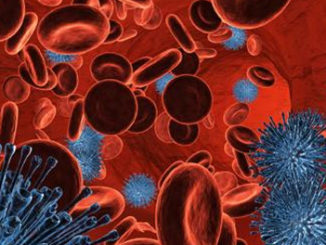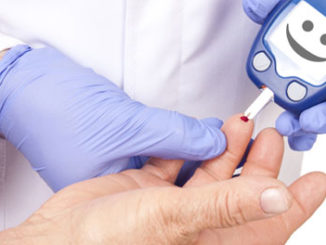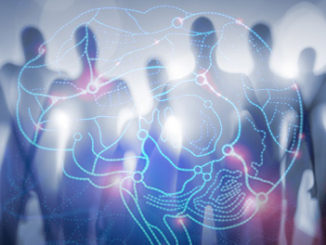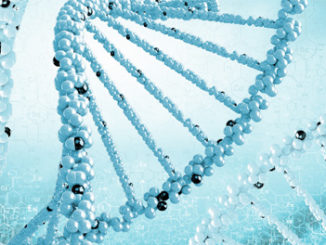Articles that explore the connection between epigenetics and diseases and disorders, including cancer, cardiovascular disease, diabetes, autoimmune disease, and more.
There are many examples of infectious agents that are capable of modifying the behavior of their host organism. Pathogens typically co-opt their host in ways that create an opportunity to spread into another host. For example, the rabies virus is transmitted through saliva, so the virus transforms its host into an unusually aggressive beast that is prone to bite other animals. The single-celled parasite known as Toxoplasma gondii is another clever puppeteer of its host. Rodents infected with this microbe [more…]
Zinc is a mineral that’s vital to our health and is involved in several aspects of cellular metabolism. According to the National Institutes of Health, zinc plays a role in a wide range of important processes like healing wounds, synthesizing proteins and DNA, and the division of cells. It’s even required to be able to taste and smell properly. Published in Molecular Nutrition & Food Research, recent evidence conducted at the Oregon State University also suggests that zinc affects the [more…]
Type 2 diabetes mellitus (T2DM) is a polygenic metabolic disease characterized by elevated blood sugar levels due to pancreatic beta-cell functional impairment and insulin resistance in tissues such as skeletal muscle, adipose tissue and the liver (1). Millions of people around the globe are diagnosed with diabetes, and its incidence is estimated to double by 2030. It has become one of the most challenging public health issues of 21st century and the fifth leading cause of death worldwide (2). The [more…]
Finally, spring is here – that wonderful time of year when the temperature starts to rise and everything is in bloom. But for many of us, it also marks the beginning of allergy season. That means itchy watery eyes, sneezing, running nose, coughing and overall misery. But allergies don’t just affect people in the spring and they are not all related to weather. According to the Centers for Disease Control and Prevention (1), more than 50 million Americans have an allergy [more…]
Major depressive disorder (MDD) affects up to 17% of the world’s population. The WHO estimates it will be the second most costly disease to world governments by 2020. As devastating as it is to those who suffer from it, and to their loved ones, relatively little is known about its exact causes, and while diagnosis and treatment have advanced greatly over the past twenty years, far too many people continue to slip through the cracks (only about 50% of patients [more…]
A new epigenetic study has identified 30 genes connected to allergies and asthma that make people more susceptible to these conditions. Using the newly discovered gene targets from this study, scientists could potentially create drugs to combat allergic diseases and reduce allergic responses. About 6.8 million children and 18.7 million adults in the U.S. suffer from asthma. According to the Asthma and Allergy Foundation of America, 60 million people suffer from both asthma and allergies, affecting 1 out of every [more…]
Recent research at the University of Missouri School of Medicine sheds some light on the epigenetic changes to proteins that occur as a result of . Their results could help progress treatments for liver diseases linked to alcohol consumption. The lead author of the study and Margaret Proctor Mulligan Professor at the MU School of Medicine, Shivendra Shukla, PhD, says that “we know that chronic alcohol use is damaging to the liver, but binge drinking amplifies that damage.” Chronic liver [more…]
The nascent field of epigenetics has been helpful in elucidating upon other polygenic traits and diseases. Thus it only seems logical to apply it to the study of , a chronic and debilitating illness with a sundry of risk factors. In his widely cited 2013 article, Dr. Thomas Insel defines schizophrenia as “a collection of signs and symptoms of unknown aetiology, predominantly defined by observed signs of psychosis.” The NIMH estimates it affects 1 out of 100 people. Yet in [more…]
A majority of people know that improving your diet will lead to an improvement in your health. But not everyone knows that the consequences of eating poorly can actually persist even after you’ve changed your dietary habits for the better. New research on mice suggests that even following the treatment of atherosclerosis – the build-up of plaque in your arteries – by lowering blood cholesterol and improving diet, the detrimental effects of poor eating continues to affect the functioning of [more…]
Every cell in the human body contains every human gene. However, not all genes are expressed, or turned “on”, in each cell. Depending on the type of cell, certain genes will need to be expressed and others not. For example, a heart cell possesses genes necessary for appropriate kidney function, but in a healthy heart cell these genes won’t be expressed. Similarly, a kidney cell has genes for proper heart function, but only the genes relevant to kidney functioning should [more…]











